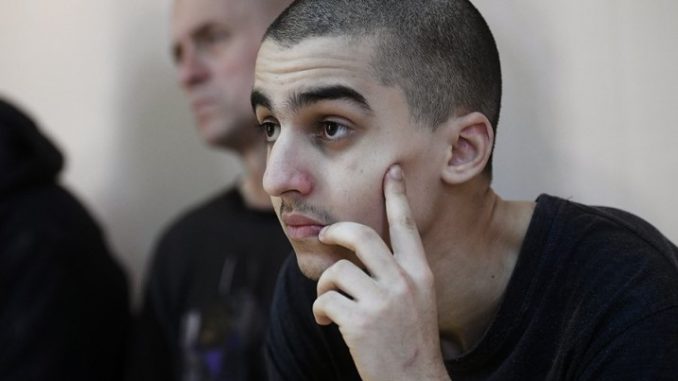
Ibrahim Saadoun, 21 years old, the young man who attracted the attention of the world after his trial following his arrest in the war in Ukraine, and who was sentenced to death, at a time when many questions are being asked about this young man, whether he participated in the war in return for money, whether he should be classified as a terrorist, whether there are guarantees for his fair trial in the Donetsk Republic, which was declared independent by Russia in February 2022.
Ibrahim, a public school graduate, continued his primary education in Agadir, where his father worked at the southern command of the military gendarmerie. He then began his studies in Casablanca, after his father moved there to work.
Ibrahim Saadoun is a Moroccan student, who obtained Ukrainian citizenship in 2020, he is considered the only Arab Muslim to have been accepted into a program supervised by a group of Western countries, led by the United States, after passing relevant tests and undergoing paramilitary training for 14 months, and then join a selected group to pursue a specialty at the Faculty of Aerodynamics and Space Technology of the Kyiv Institute, a specialty that is not available for other countries participating in the program. Thus, the young man was forced to obtain Ukrainian nationality, especially since the student’s family did not cover any expenses and the institute allocated him a monthly scholarship of $900, in a country where the minimum wage does not exceed $196.
According to available data, the young Moroccan at the time of his arrest held Ukrainian citizenship, with the rights and duties that it imposes, which means that describing him as a mercenary reflects a significant lack of certain data.
Ibrahim graduated from high school in June 2018, and then chose to continue his studies in Russia and then in Ukraine, where he joined the Kyiv Institute with the elite selected for the said program. He had only two years left to graduate as a pilot engineer, but the outbreak of war turned everything upside down. The students participating in the program were transferred to Bologna and were not allowed to return to their country, they were promised to continue their education in America. They were promised to continue their education in America. They found themselves, especially those who were fluent in English, doing translation work from English, especially since this period was known for the transfer of arms from the West.
The young Moroccan is fluent in many languages, including Russian, Ukrainian, French, English and Arabic. He was chosen from a group of five members of his colleagues at the institute, two from England, one from France, and one from an Asian country, and they were transferred to the Azov-Stal laboratory to conduct the translation. After the war intensified, Ibrahim and those with him realized the magnitude of the task they were performing. Ibrahim, given his command of Russian, spoke with a landlady to achieve the goal, which was accomplished in a well-developed pattern, before the scene became an arrest and turned into a serious trial. Although Ibrahim has Ukrainian citizenship and enjoys all the rights and duties that come with it.
Meanwhile, Ibrahim’s father has redoubled his efforts to try to draw attention to what awaits his son. He has written to numerous parties to clarify Ibrahim’s position, but to no avail.
Ibrahim had previously demanded to be treated well, refusing the status of mercenary or terrorist that he was given, because firstly, he was a citizen and secondly, he was not fighting. It is worth mentioning here that according to the Geneva Convention, a combatant arrested by the opposing party during an international armed conflict is considered a prisoner of war. Humanitarian law guarantees the protection of all persons who find themselves in the hands of the enemy during an armed conflict, whether they are combatants or civilians, they are considered prisoners of war.

Be the first to comment